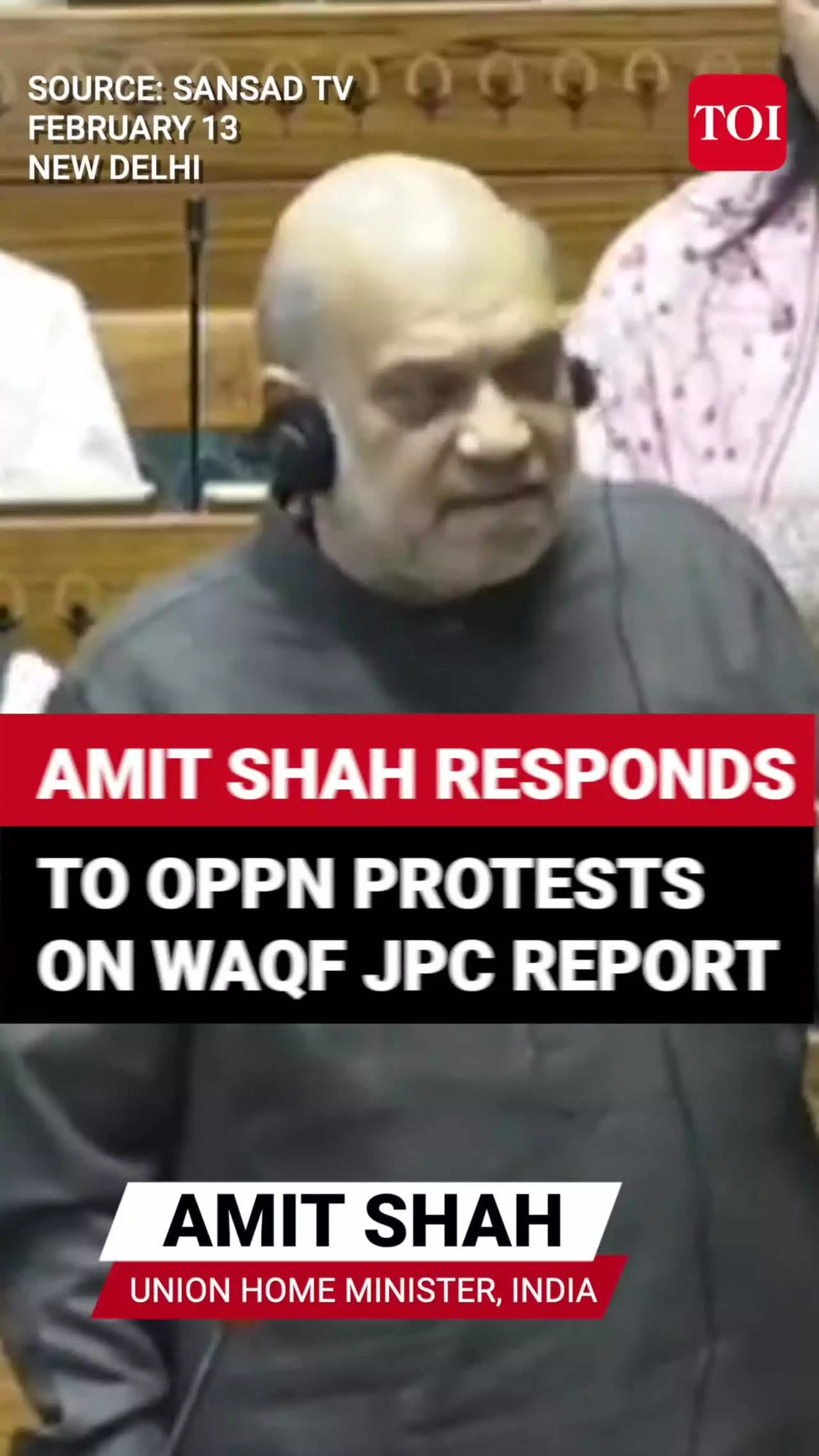 |
|
The Indian Parliament, specifically the Rajya Sabha, experienced significant disruption stemming from the controversy surrounding the Waqf JPC report. The opposition parties launched a vehement protest, their central grievance being the government's decision to remove dissenting opinions and notes from the final report. This action, they argued, undermined the integrity of the investigative process and prevented a comprehensive and balanced representation of the findings. The deletion, they claimed, served to suppress alternative perspectives and viewpoints critical of the government’s policies regarding the Waqf board and its management of properties. The ensuing uproar forced the suspension of parliamentary proceedings several times, disrupting the usual legislative agenda and generating considerable media attention. The atmosphere in the chamber was charged, with opposition members vociferously expressing their dissent and demanding the reinstatement of the omitted dissenting notes.
At the heart of the controversy lies the question of transparency and accountability within the government's handling of sensitive reports. The opposition’s argument centered around the principle that a comprehensive report should reflect all viewpoints, including those that challenge the government's narrative. By removing dissenting notes, they asserted, the government deliberately skewed the report, presenting a biased and incomplete picture of the situation. The opposition's accusations sparked a debate on the broader issue of parliamentary procedures and the extent to which the government is accountable to the legislature and the public. The debate highlighted fundamental questions about the role of parliamentary committees in investigating sensitive matters and the importance of maintaining the integrity of the investigative process. This incident underscored the increasing polarization of Indian politics and the challenges in achieving consensus on crucial national issues.
In response to the intense opposition, BJP leader Amit Shah, a prominent figure in the ruling party, took to the floor of the Rajya Sabha to defend the government's stance. He argued that the deletions were made based on procedural grounds and did not represent any attempt to suppress dissenting voices. His defense, however, failed to satisfy the opposition, who remained unconvinced and continued their protests. The government's position, and Shah's defense, emphasized the need for maintaining order and efficiency within parliamentary proceedings, suggesting that the dissenting notes were potentially disruptive or irrelevant. This clash of perspectives highlights the deep divisions within the Indian political landscape and the ongoing struggle to find common ground on sensitive issues. The event added fuel to the already intense political climate, leading to further accusations and counter-accusations between the ruling party and the opposition.
Amidst this political turmoil, Finance Minister Nirmala Sitharaman introduced a new Income Tax Bill aimed at simplifying the existing tax regime. The introduction of the bill, however, was overshadowed by the ongoing debate surrounding the Waqf report, highlighting the complexities of navigating political and economic agendas simultaneously. The juxtaposition of these two significant events – a heated political debate and the introduction of crucial economic legislation – underlined the challenges facing the government in managing its diverse responsibilities while facing persistent political opposition. The introduction of the new tax bill demonstrates the government's commitment to economic reforms, yet the political climate suggests that the passage of the bill may be subject to further delays and hurdles due to the ongoing controversies. The situation highlights the intricate interconnectedness of political and economic agendas within the Indian parliamentary system.
The entire episode underscores the need for robust and transparent parliamentary processes to ensure that sensitive issues are handled with care and impartiality. The debate surrounding the Waqf report highlighted the importance of considering all viewpoints and ensuring that the decision-making process is open and accountable. The incident also serves as a reminder of the crucial role of the opposition in holding the government accountable and ensuring that legislative processes uphold democratic principles. The events in the Rajya Sabha exemplify the tensions and complexities inherent in the functioning of a vibrant democracy. The resolution of this conflict and the long-term implications for the Waqf board and the broader political landscape remain to be seen. The incident will undoubtedly continue to shape the political narrative in India for some time to come, influencing public perception of both the government and the opposition.
Source: Parliament Uproar: Amit Shah's Big Statement On Waqf Report Amid Opposition Ruckus
